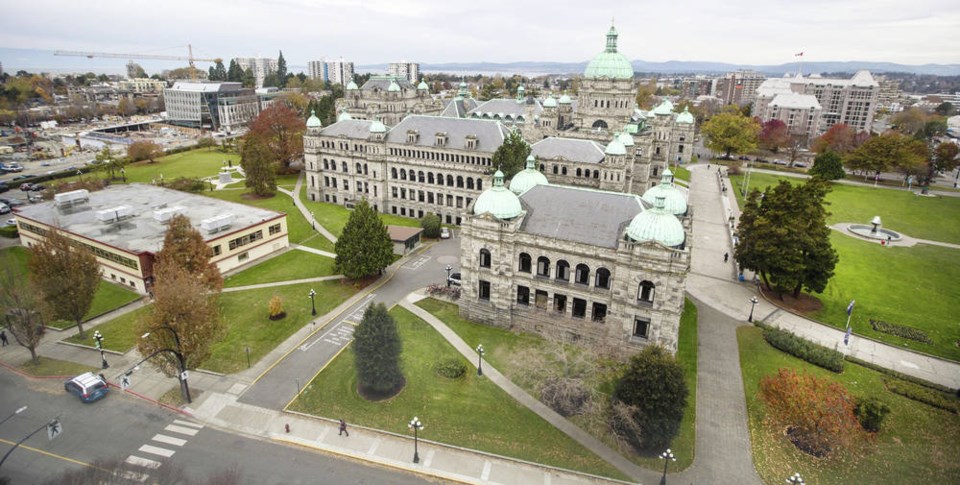The spring session of the legislature kicks off Monday and it will include more pandemic-era irregularities including a sparsely populated chamber and a budget that won’t be presented until the third week of April, which opposition parties say gives them less time to grill the NDP government on spending measures.
Financial relief for small business, COVID-19 measures and the vaccine rollout, housing for people without homes and income assistance rates are among the issues that will dominate the agenda.
The first day of the sitting coincides with B.C.’s vaccine rollout plan for the public outlined by provincial health officer Dr. Bonnie Henry and Health Minister Adrian Dix.
Lt.-Gov. Janet Austin will deliver the speech from the throne on April 12, seven weeks into the 12-week session. The following week, on April 20, Finance Minister Selina Robinson will deliver the budget.
Typically, the throne speech and the budget are unveiled in early February, laying out the government’s priorities for the fiscal year and giving opposition parties 11 weeks to question cabinet ministers during budget estimates.
B.C. Green Party Leader Sonia Furstenau said she’s concerned that the opposition parties will only have 14 days for debate during question period and budget estimates.
“I’m concerned about the implications that has for opposition parties to fully hold government to account about the decisions that they’re making,” she said. The House will break for the summer June 17.
Furstenau said that between the end of the 2020 summer session in July and the start of the spring session, there have only been seven days during the two-week winter session in December to question the government about its policies.
“That’s an astonishingly tiny number of days over eight months,” she said, especially during the unprecedented crisis posed by the pandemic.
The chamber, which during pre-pandemic times would be bustling with debate and partisan volleying, will only seat 24 socially distanced MLAs — 15 NDP MLAs, eight Liberals and one Green party member — while the other 63 will chime in virtually. Cabinet meetings, committee hearings and scrums will continue to take place online, similar to last year’s summer and winter sessions.
NDP House Leader Mike Farnworth said the government will introduce seven pieces of legislation relating to increased transparency in the real estate sector, mitigating gun and gang violence, and measures linked to ICBC’s shift to an “enhanced care” model or no-fault insurance.
Farnworth said there’s plenty of opportunity for opposition parties to question the government about the budget.
Interim Liberal Leader Shirley Bond said she’s frustrated by the province’s reluctance to use rapid testing to screen for COVID-19 in nursing homes and schools, a strategy urged by B.C.’s seniors’ advocate and the B.C. Teachers Federation.
Bond said it’s unacceptable that more than a million rapid-testing kits are sitting in a warehouse and that the government has ignored calls to utilize the technology amid the presence of highly contagious COVID-19 variants.
Exposures of the U.K. variant in schools in the Fraser Valley has also increased the pressure from the teachers federation for the government to make masks mandatory in classrooms at all times and to allow school districts to implement stricter policies based on COVID-19 numbers in their area.
The clock is also ticking on Attorney General and Minister Responsible for Housing David Eby’s promise that hundreds of people sheltering in Victoria parks will be provided housing before March 31.
Eby has said B.C. Housing is looking for vacant hotels or residential buildings that could be converted to supportive housing in Victoria.



